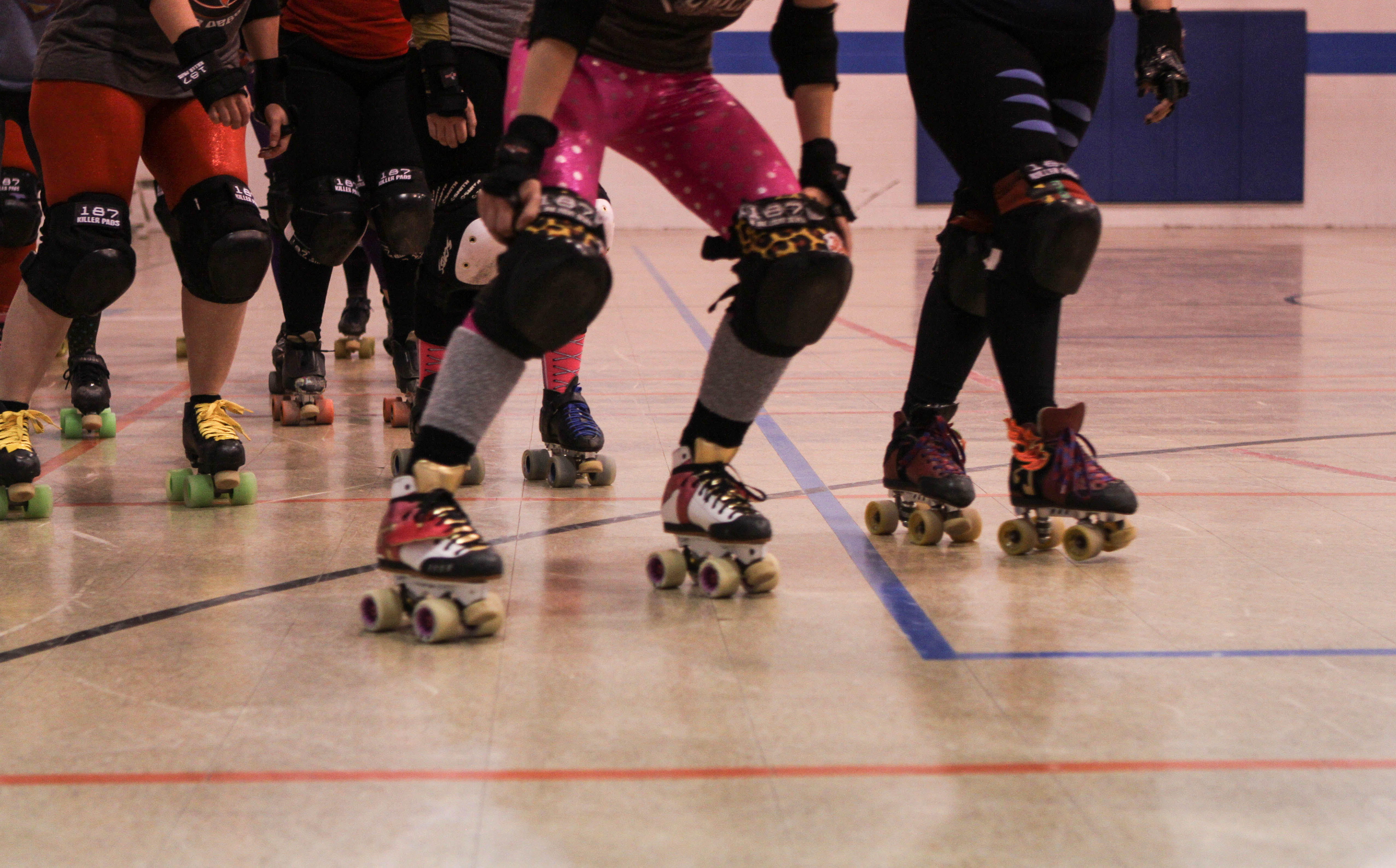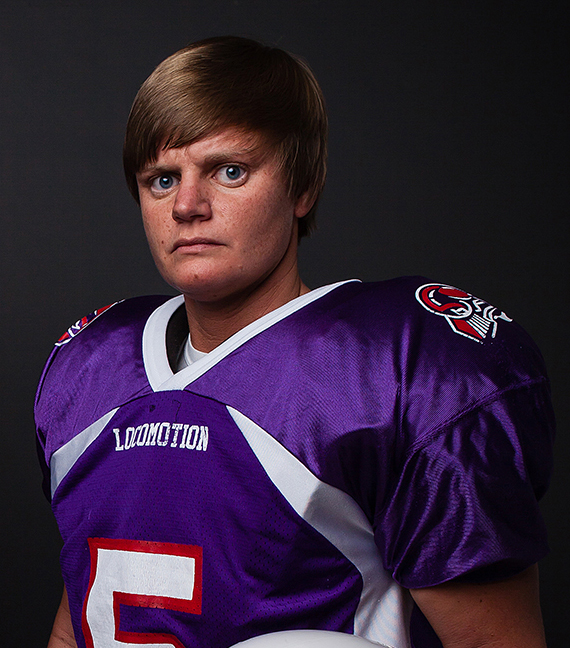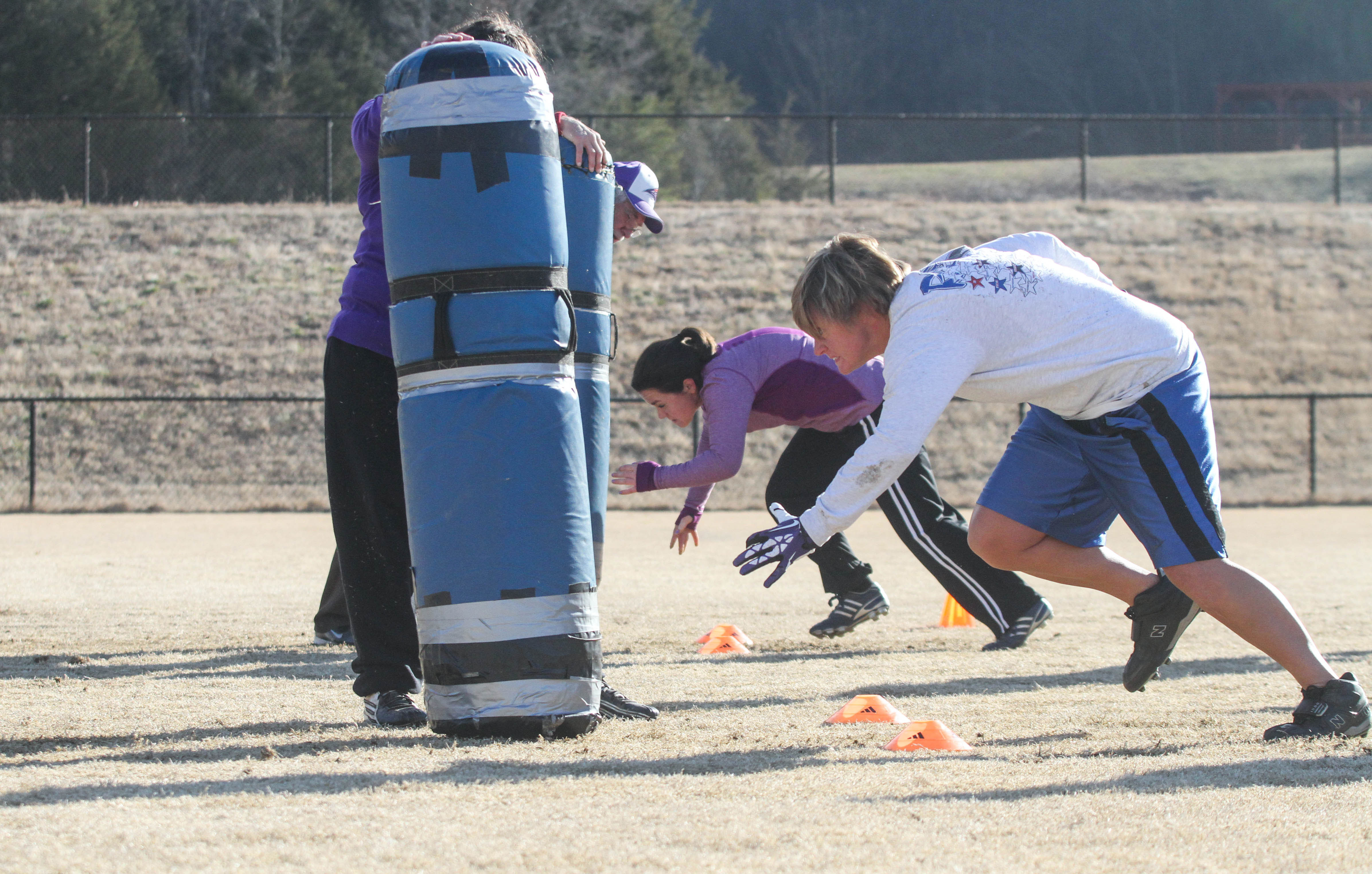Back home, my first official beat was "alternative" sports writer. Mainly, I covered the local roller derby. I won't ever forget my first bout.
It was dizzying but empowering. Brutal but ballet-like.
I was taken with derby culture.
The funky outfits.
The derby names.
I wanted a derby name.
"My last name is Cate. So my derby name is really just a play on that," says Chattanooga Roller Girl Jenny Hate. Hate is a veteran of CRG. She is tall and slender with a no-nonsense air about her. "We're trying to get rid of the more kitschy side of roller derby," she informs me. "The goal is to make it a more professional sport."
Historically, the roller derby has been associated with infamous women in tight clothing, elbowing and clothes-lining contenders while racing around a banked track. Dramatic storylines were invented to draw audiences. Movements were staged.
"It was like professional wrestling that way," says Hate. "The roller derby isn't what it was 40 years ago." For starters, the derby no longer uses banked or sloped tracks.
CRG is a member of the Women's Flat Track Derby Association (WFTDA) which consists of 234 leagues representing 14 countries and which play by a stringent set of rules. Each year the WFTDA updates its rulebook. Various accessories, piercings and even hairstyles are banned. Part of streamlining the sport means standardizing the uniforms.
"I would like to see people understand what the roller derby is actually about. It's a legitimate sport," Hate says. "There are rules and points."
"And there's no ball," CRG skater Cupcake adds wryly, proving you can take the skater out of the spunky outfit but you can't take the spunk out of the skater.
No doubt, the derby will continue to attract tough women, but the modern focus is on athletics not theatrics, lest the spectators miss the point. So no more tutus. No more ripped fishnets. Perhaps someday soon, no more derby names.
I must confess, I was disappointed ... wait. Had I missed the point?
The players of Chattanooga's Locomotion know what it's like to have to work harder to prove themselves. Locomotion is Chattanooga's elite semi-professional full contact female football team. It is a member of the Independent Women's Football League (IWFL) which includes 32 teams across the country playing by official NCAA rules.
"They hit just like the guys. They get injured just like the guys," Club Owner Cheryl Jacobs says of her players.
I met Cheryl at Red Bank High's football field one cold and sunny Saturday morning to observe my first practice. We sat on her tailgate and watched the players warm up with foot drills. As we chatted I quickly sensed her protectiveness toward the players.
She was adamant on one point: these were real women playing real football. Regardless of where I tried to lead the conversation, Cheryl danced the topic back to that. "When they put pads on, the only way you can tell they are women is by the ponytail hanging out the back," she said.
I watched the players on the field nimbly move their feet across the ladder-side to side, front to back. One by one, they cast off jackets and sweaters into piles at the sidelines. I pulled my hat further over my ears. I couldn't even feel my toes.
I suppose I could understand Cheryl's protectiveness. "People ask me all the time-is it flag football? Touch football? Lingerie football? I say no. It's football," she told me. She's become used to defending the legitimacy of her sport. Likewise, her players are used to defending their right to play. Between concerned family members and gender stereotypes, 99 percent of the players on Locomotion have had no experience prior to joining the team.
Take quarterback Amanda Cunningham for example.
"I've wanted to play football since I was a little girl," Amanda tells me. "But my parents wouldn't let me play with the boys in high school." Amanda was in her mid-twenties before she was finally given an opportunity through Locomotion.
"We start from scratch," says Cheryl. "We teach them the positions. The plays. The full nine yards."
A whistle blew. "Come on, ladies!" shouted Head Coach Sheryl Talley. The team had moved on to offensive tackling. They formed two rows and took turns charging and tackling the dummy bags.
"Women have spent years on the back burner," says Renae Wright, one of Locomotion's newest players. "But we can do everything boys can do. We can go for the same jobs. We can play the same sports."
And that is the point. Women's football-like the roller derby-is not about novelty. It's about strength and determination. It's about pushing through the pack and persevering.
"Drive your feet," Coach Talley hollers. I watched as a player charged the dummy, slammed it with the whole side of her body and took it to the frozen ground with a loud pop.
"When you quit moving your feet," Cheryl explains, "that's when you become a target."





